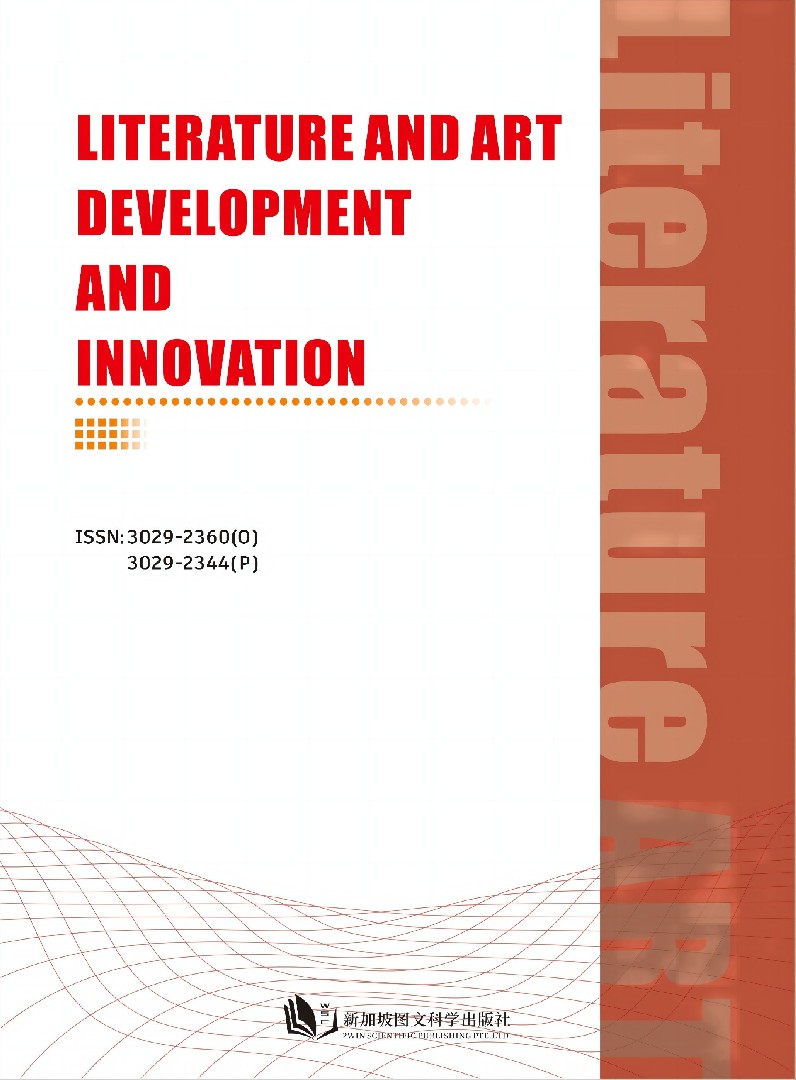作者
Yuming Kong
文章摘要
This paper delves into the complex interplay between cultural differences and the dialogue language style of female characters in the narrative "Fatal Woman," offering a comprehensive analysis of how cultural contexts influence the way characters communicate and express their identities. By examining the vocabulary, syntax, and speech acts within the dialogues, the study uncovers the subtle ways in which cultural norms and expectations shape the characters' speech patterns and the power dynamics of their interactions. The paper argues that the dialogue language style is not only reflective of the characters' cultural backgrounds but also instrumental in constructing their identities and navigating the social hierarchies within the narrative. Through a detailed examination of specific dialogues, the study demonstrates how language serves as a medium for cultural expression and negotiation, highlighting the characters' agency in challenging or conforming to societal expectations. The findings underscore the significance of cultural sensitivity in interpreting literary works and the importance of understanding the role of language in character development and narrative construction. The paper concludes by advocating for a deeper appreciation of the cultural nuances in dialogue to enrich our comprehension of literature and enhance our understanding of the multifaceted experiences of women across different cultural landscapes.
文章关键词
Cultural Differences; Dialogue Language Style; Female Characters; Power Dynamics
参考文献
[1] Celik,Ayse Betul,Goker,Zeynep Gulru.Dialogue in polarized societies:women's encounters with multiple others[J].NEW PERSPECTIVES ON TURKEY,2021,64:31-54.
[2] Prazmo,Ewelina.In dialogue with non-humans or how women are silenced in incels'discourse[J].LANGUAGE AND DIALOGUE,2022,12(03):383-406.
[3] Shaalan D.Case Study of Innovative Second Language Learning Activities for Saudi Women Undergraduates Learning English[J].Journal of Language Teaching and Research,2024,15(03):746-753.
[4] Limbacher,Sarah A.,Mazanec,Susan R.,Frame,Jennifer M.,et al.Early-stage breast cancer menopausal symptom experience and management:exploring medical oncology clinic visit conversations through qualitative analysis[J]. SUPPORTIVE CARE IN CANCER,2022,30(12):9901-9907.
[5] Belaid,Loubna,Atim,Pamela,Ochola,Emmanuel,et al.Community views on short birth interval in Northern Uganda:a participatory grounded theory[J].REPRODUCTIVE HEALTH,2021,18(01).
[6] Codina Sola,Nuria,Vermeulen,Pieter.Introduction:the aesthetic agency of minor literature[J].INTERVENTIONS�INTERNATIONAL JOURNAL OF POSTCOLONIAL STUDIES,2024.
[7] Davidson,Natasha,Hammarberg,Karin,Fisher,Jane.'If I'm not sick,I'm not going to see the doctor':Access to preventive sexual and reproductive health care for Karen women from refugee backgrounds living in Melbourne,Australia-A qualitative study[J].HEALTH PROMOTION JOURNAL OF AUSTRALIA,2024.
[8] Tiburi,Marcia.From swearing to dialogue:The performativity of feminism against the ravenous games of patriarchal language[J].FRONTIERS-A JOURNAL OF WOMEN STUDIES,2021,42(03):65-86.
[9] Williams,Clare,Johnson,Barbara,Middleton,Peter G.,et al.Family planning,pregnancy and birth in women with lung conditions:a worldwide survey[J].ERJ OPEN RESEARCH,2021,7(04).
[10] Melnyk,Halia,Djukic,Maja,Merriman,John,et al.An integrative review:Women's psychosocial vulnerability in relation to paid work after a breast cancer diagnosis[J].JOURNAL OF ADVANCED NURSING,2021,77(05):2144-2154.
[11] Mauluka,Chancy,Stones,William,Chiumia,Isabel Kazanga,et al.Exploring a framework for demandable services from antenatal to postnatal care:a deep-dive dialogue with mothers,health workers and psychologists[J].BMC PREGNANCY AND CHILDBIRTH,2023,23(01).
[12] Sarmiento,Ivan,Paredes-Solis,Sergio,Loutfi,David,et al.Fuzzy cognitive mapping and soft models of indigenous knowledge on maternal health in Guerrero,Mexico[J].BMC MEDICAL RESEARCH METHODOLOGY,2020, 20(01).
Full Text:
DOI
